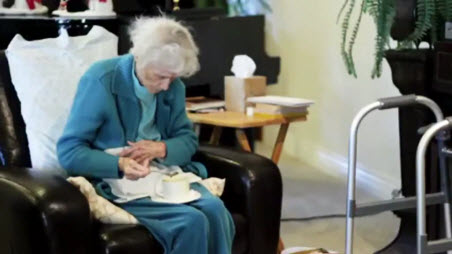Whether your diagnosis came as a shock, or confirmed what you’d suspected for some time, it’s important to plan ahead while you’re still able to make clear decisions for yourself.
If you’ve just been diagnosed with dementia, you may be feeling numb, scared and unable to take everything in. Give yourself a little time to adjust. It might help to talk it through with family and friends.
Once the initial feelings have passed, it’s time to move on and create an action plan for the future. Dementia is a progressive illness, so the sooner you take care of legal, financial and healthcare matters, the better. These are the key things to think about:
Get assessed
Your local authority has a duty to carry out a care and support needs assessment to establish which of its services you need. To arrange an assessment, contact social services or your GP.
Read more about how to get an assessment for a person with dementia. For further information, read the Alzheimer’s Society’s factsheet on community care assessments.
Services and support
Find out what’s available locally, so you’re prepared and able to call on this support as and when you need it. Services arranged by local authorities vary between areas, but may include home care services, equipment and adaptations for your home. Some services, such as community nursing, are arranged through the NHS. Ask your hospital consultant for details.
Charities such as the Alzheimer’s Society, Age UK and Dementia UK provide a range of services, including information, helplines, support groups, lunch clubs and home care schemes.
Read more about what to expect from social services and the NHS and where to find sources of help and support for people with dementia.
Making a will
It’s a good idea to make a will, if you haven’t already. This ensures that when you die, your money and possessions go to people of your choosing. A person with dementia can still make or change a will, provided you can show that you understand what you are doing and what the effects of it will be. Your solicitor will decide if this is the case.
Read more about dementia and legal issues, including making a will. The Alzheimer’s Society also has a useful factsheet on managing legal affairs.
Putting your papers in order
Make sure that all your important papers can be easily found. These might include bank and building society statements, mortgage or rent documents, insurance policies, your will, tax and pension details, bills and guarantees.
Consider setting up direct debits or standing orders for your regular bills. This will mean they are paid automatically from your bank account each month.
Read more about managing someone else’s banking.
Claiming benefits
Check that you are claiming all the benefits you’re entitled to. In particular, check:
whether you are eligible for Personal Independence Payment (which replaced Disability Living Allowance in early 2013) or Attendance Allowance
whether your carer (if you have one) is eligible for Carer’s Allowance
Lasting power of attorney
You can appoint one or more people as “attorneys” to manage your affairs, including your finances, property and medical treatment, should it become necessary. You can choose anybody you trust to be your attorney, usually a close friend or family member, but they must be over 18.
Read more about power of attorney.
Advance care planning
You may wish to make an advance care plan, so you can have a say in your future medical care. It enables you to refuse, in advance, a specific medical treatment or procedure, should you become unable to decide for yourself in the future.
Find out about advance care planning.
Take care of your mental health
If you’re depressed or feeling very down, talk to your GP. Depression is very common in early dementia and there are a range of treatments, including talking treatments, that can help.
Read more about how to spot depression.
Staying well
As with other long-term conditions, it’s important to look after yourself when you have dementia, by stopping smoking, eating healthily and taking regular exercise. Ask your GP if you would benefit from flu vaccination and pneumonia vaccination.
Read more about living well with dementia.
Memory books
Memory books can be a helpful way of stimulating your memory and reconnecting you with your loved ones in the future. Essentially, it’s a “This is Your Life” compilation of photographs, notes and keepsakes from your childhood through to the present day. It can be either a physical book or a digital system, like a photo book.
Dementia books on prescription
Reading Well Books on Prescription for dementia offer support for people diagnosed with dementia, plus their relatives and carers. GPs and other health professionals can recommend titles from a list of 25 books on dementia. The books are available for anyone to borrow for free from their local library.
Books on Prescription for dementia are also available to people living without a formal diagnosis, who may be worrying about symptoms.
Read more about the Reading Well Books on Prescription for dementia titles.
Summary
Information on what to do if you’ve just been diagnosed with dementia, including advice on benefits, legal affairs, social services and more.




